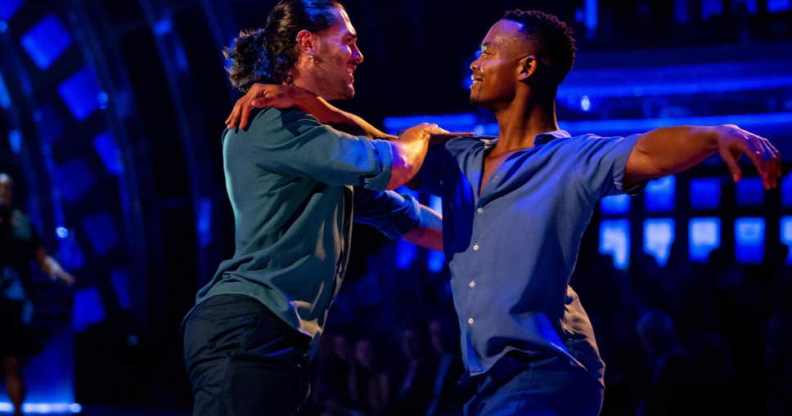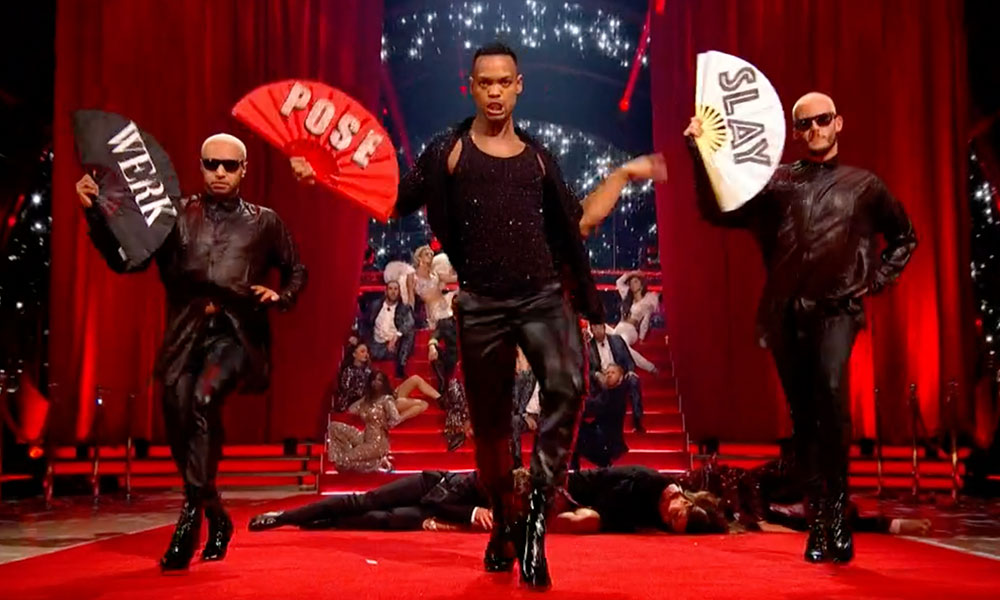Strictly Come Dancing looks set to finally leave the dark ages and welcome its first same-sex couple

Graziano Di Prima and Johannes Radebe performed Strictly’s first ever same-sex dance routine (BBC)
Strictly Come Dancing is reportedly planning on introducing a same-sex couple for the first time in its next season.
The BBC contest has faced sustained criticism for several years over its refusal to introduce a same-sex pairing, but has consistently refused to bow to pressure.
But Strictly Come Dancing producers are reportedly planning to change that after ITV’s Dancing On Ice introduced a same-sex pairing in its last season.
“Many of Strictly‘s stars have called on producers to cast a same-sex couple for the past few years and it’s been decided this will be the year,” an unnamed insider told The Sun.
Johannes Radebe could be part of the first same-sex couple on Strictly Come Dancing.
The hit series featured a groundbreaking same-sex dance routine between Johannes Radebe and Graziano di Prima last year, and Radebe has made “no secret of how keen he’d be” to dance with a man in the show’s next outing.
“None of the dancers have been ruled out of the running but Johannes has been the most vocal about stepping forward and making history again on the series,” the source added.
They said there are “several other dancers” who are also keen on being part of Strictly Come Dancing‘s first same-sex dance pairing.

Johannes Radebe performed a voguing routine in high heels during last year’s series. (BBC)
Another BBC source told the news outlet that Johannes is “the obvious choice as he is openly gay”.
They continued: “But everyone on the show wants to make this happen.
“It feels very much like the right time.”
Last year’s same-sex dance routine attracted 300 complaints.
In February, Strictly Come Dancing judge Brunio Tonioli said it would be a bad idea for the show to introduce a same-sex pairing “just to get headlines”.
“It has to be the right person and couple for it to work,” he added.
Strictly tested out the idea of a same-sex dance pairing last year when Radebe and di Prima performed their routine — but even that caused controversy.
More than 300 people complained to the BBC over the November 2019 dance routine, with most saying they found it “offensive”.
The BBC did not uphold any of the complaints.

